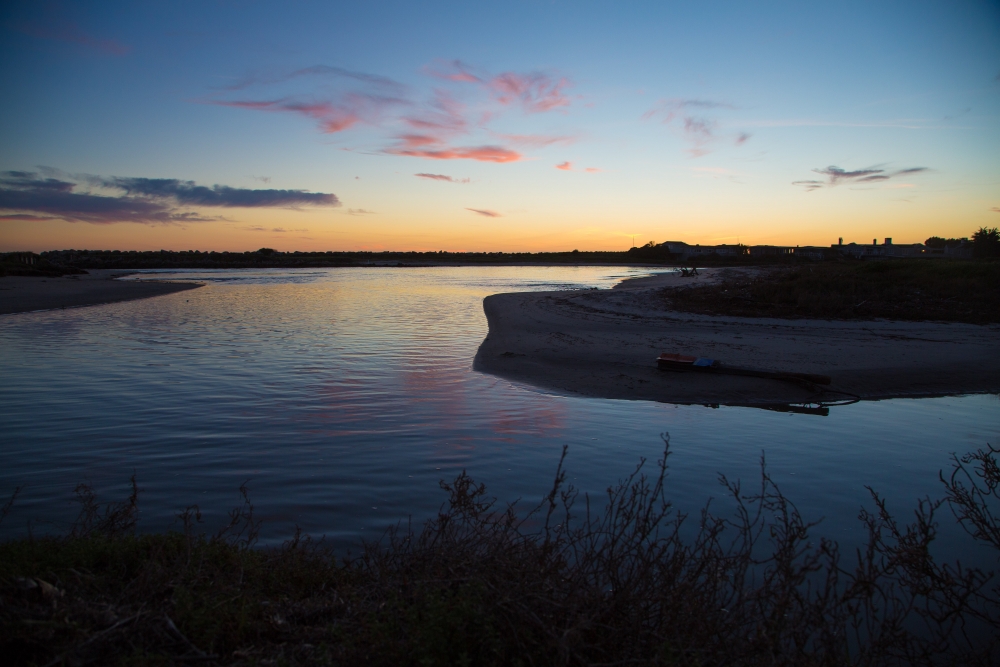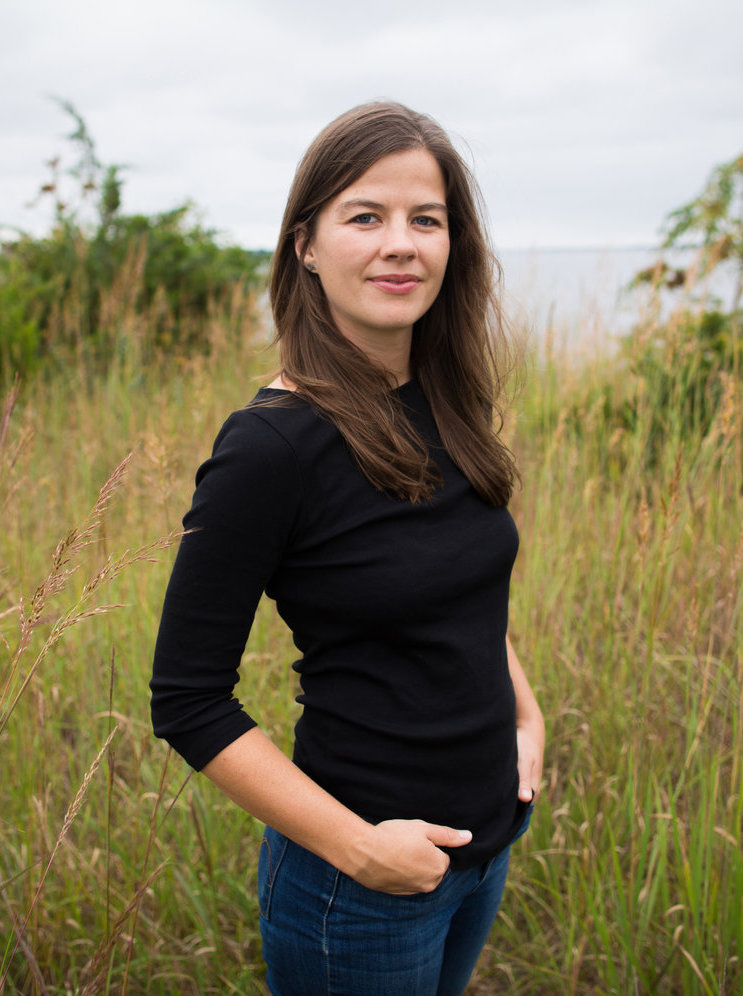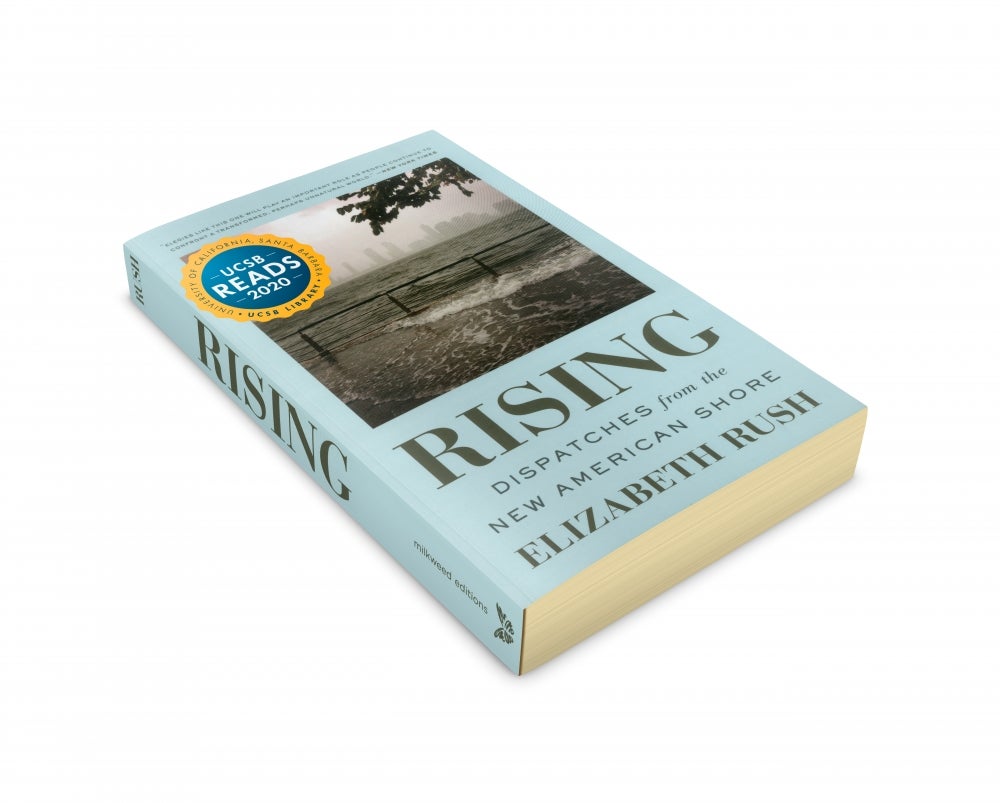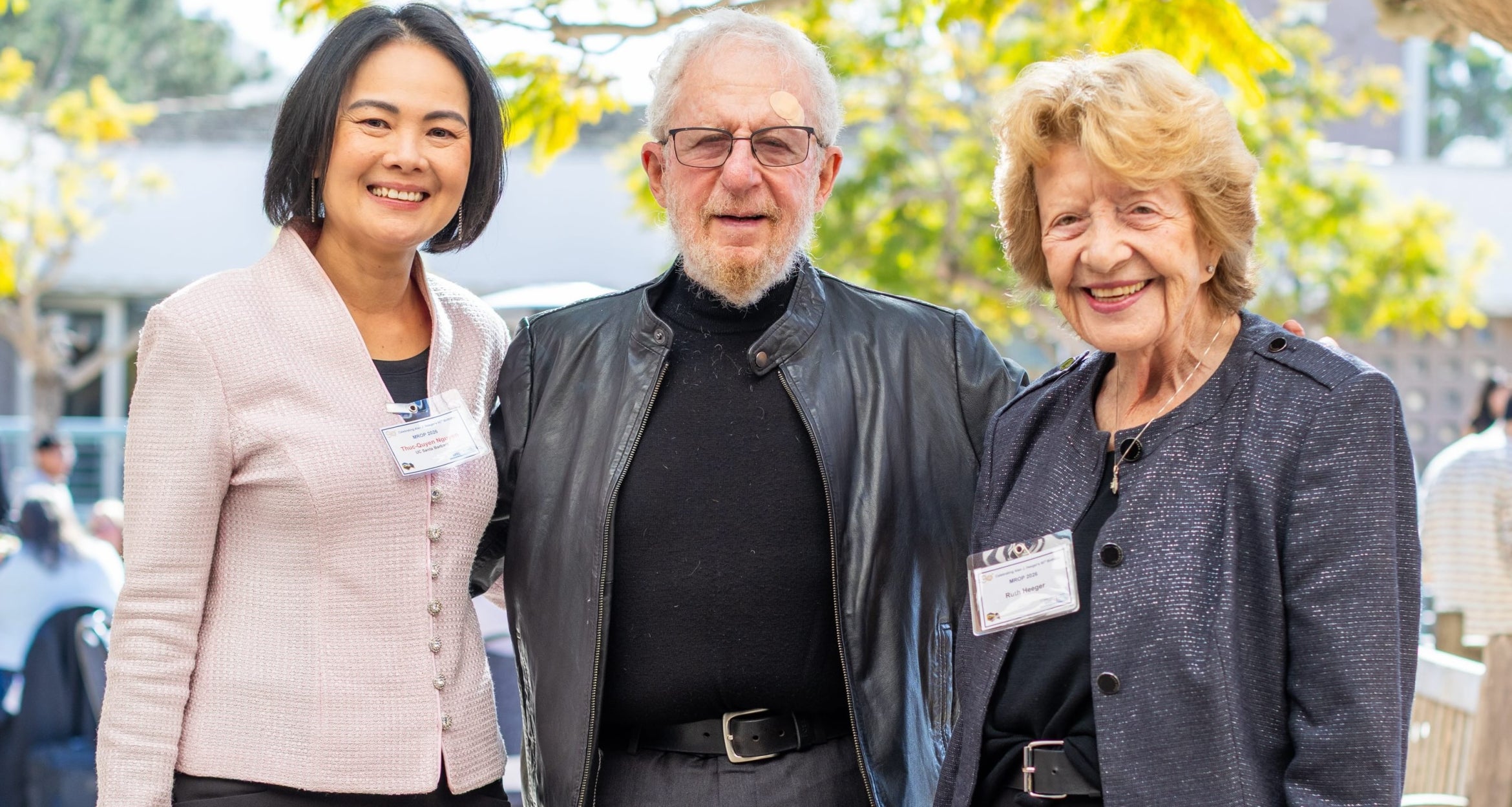
‘Rising’


On her first visit to the Isle de Jean Charles in Louisiana, in 2013, journalist Elizabeth Rush had a realization: “This is a world unto itself, coming undone.” She had come looking for proof of sea level rise in the U.S., and did she ever find it.
“It is possible to catch a glimpse of the future out here, of a world where the ocean covers what we used to think of as the coast. Rush wrote her in resulting book, ‘Rising: Dispatches from the New American Shore.’ “That is because over the past sixty years the wetlands that once surrounded the Isle de Jean Charles have all drowned, the rate of accretion trumped by land subsidence, erosion and sea level rise. When I squint, it is difficult to tell where the Island Road ends and where the water begins.”
“Rising,” winner of the 2018 National Outdoor Book Award and a finalist for the 2019 Pulitzer Prize in General Nonfiction, among other honors, is the UCSB Reads 2020 selection. With the UC Santa Barbara campus largely shut down due to Covid-19 mitigation efforts, the program has moved its events online — including its signature author talk.
Rush will discuss her book and the impact of sea level rise on the U.S. in a free online community talk moderated by David Pellow, holder of the Dehlsen Chair and a professor of environmental studies, on Earth Day, Wednesday, April 22, at 4 p.m. Participants are asked to register for the event.
“Despite the need to cancel Elizabeth’s Rush in-person talk and other UCSB Reads 2020 programming, UC Santa Barbara Library is excited to announce that the campus and local community is still able to participate in several ways,” said Alex Regan, events and exhibitions librarian. “On Earth Day, Rush will speak to the community. Multiple classes this spring are still able to teach ‘Rising’ since the library owns an e-Book version that allows for multiple simultaneous users. Rush also will interact with students by visiting three classes — two in environmental studies, and one in English — via Zoom.”
The library also is producing and will distribute a video, with campus researchers Charles Lester and Andrew Brooks, about “Rising,” sea level rise and local marshlands at Coal Oil Point and Carpinteria Salt Marsh. Prior to the shutdown of in-person events due to Covid-19, UCSB Reads 2020 programming originally included tours of both marshes.
“The video will provide information about the impact of sea level rise on these UC Natural Reserves and other local areas,” Regan noted.
Rush, who grew up hiking in marshes north of Boston with her family, never expected she’d one day be writing about them as a means of exploring sea level rise. A freelance assignment in Bangladesh 10 years ago changed all of that.
Reporting a piece about a then-new border fence, the world’s longest, between India and Bangladesh, Rush spoke to locals who told her, “The fence is not really a problem, the real problem is salt in the aquifer that’s killing our crops,” she recalled. “That’s when I really started to see that sea level rise was a thing that was happening in the present tense. Soon after that I moved to New York and decided to search for sea level rise stories in the U.S. I knew if it was happening in Bangladesh, it was happening here.”
The Isle de Jean Charles was her first stop, and opens the book. With firsthand testimonials, profiles and deep reporting, “Rising” highlights communities across the country where the change has been most dramatic, from a devastated Staten Island after Hurricane Sandy to a flood-prone neighborhood in Pensacola first settled by escaped slaves hundreds of years ago.
Some of the worst impacts she found were in some of the country’s most vulnerable communities, revealing a close connection between climate change and social justice. In her book, Rush demonstrates how race, class, national origin and income levels further exacerbate vulnerability to rising seas.
“As I started to become interested in different coastal communities that were experiencing sea level rise in the present tense,” she said, “I also started to recognize some other overlap: that a lot of the communities I was seeing where flooding is a real problem are also places where property taxes are not such that they could afford an innovative infrastructure solution to design their way out. It’s not just low-lying places but also low-lying places in disenfranchised communities.
“In some ways the coronavirus is sharing with us a very similar story on an accelerated timeframe,” Rush added. “If you’re from a community where you can’t afford to stop working, or you have a job that you can’t work from home, in some ways it’s telling us a story about our collective vulnerability but also reminding us that vulnerability is not shared evenly across society. Climate change — and in particular sea level rise — also reveals something pretty similar. What mirrors are both of these phenomena holding up to our society?”
Rush is the recipient of numerous honors, including the Metcalf Institute Climate Change Adaption Fellowship, the Science in Society Award, the Howard Foundation Fellowship, and a grant from the Society for Environmental Journalism. She teaches creative nonfiction at Brown University.
An annual event now in its 14th year, UCSB Reads engages the campus and the Santa Barbara community in conversations about a key topic while reading the same book. UCSB Reads is presented by the UCSB Library in partnership with the Office of the Executive Vice Chancellor.
An advisory committee made up of faculty, staff, students and community representatives selected “Rising” for this year’s book, citing the power and relevance of its stories about the people and communities most at risk from sea level rise.
Public lectures, panel discussions, exhibitions and other events focused on or inspired by Rush’s book were featured over the 2020 winter academic quarter, prior to the shutdown. Hundreds of UC Santa Barbara students received free copies of the book, which also was incorporated into multiple courses. The spring quarter — and with it UCSB Reads programming — was shifted to a remote model.
Since the program began in 2007, UCSB Reads has brought the campus and Santa Barbara communities together to read a common book that explores important issues of our time.



